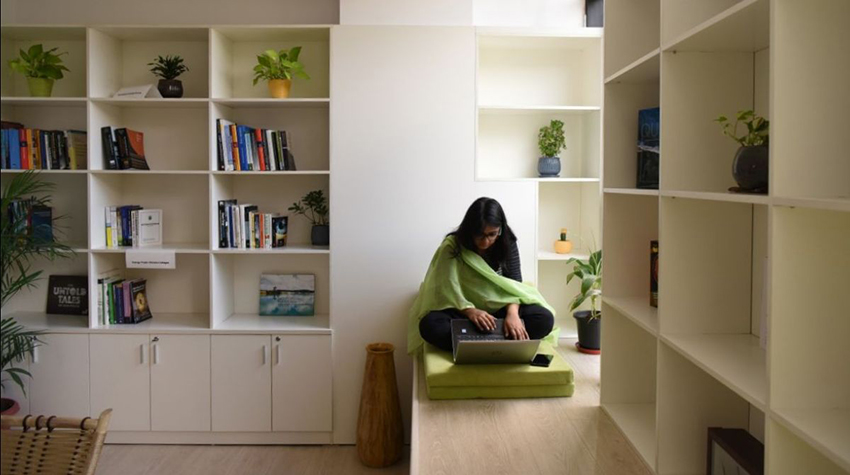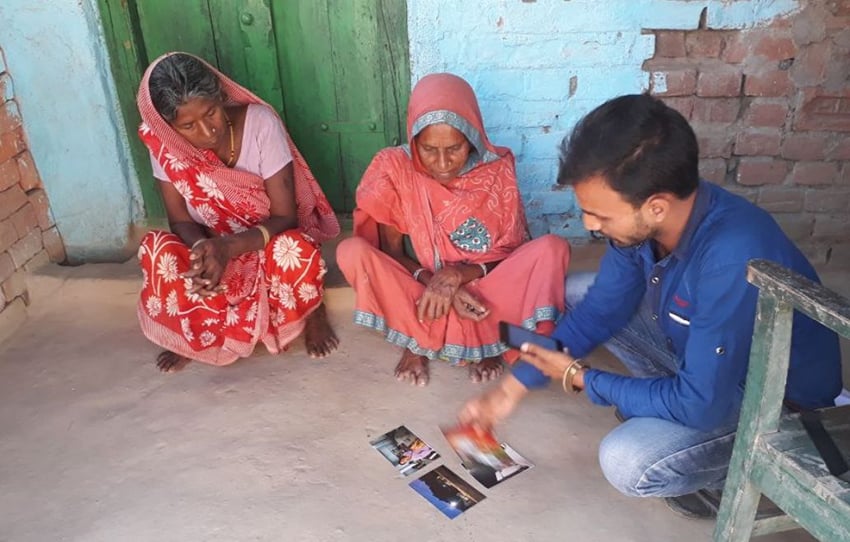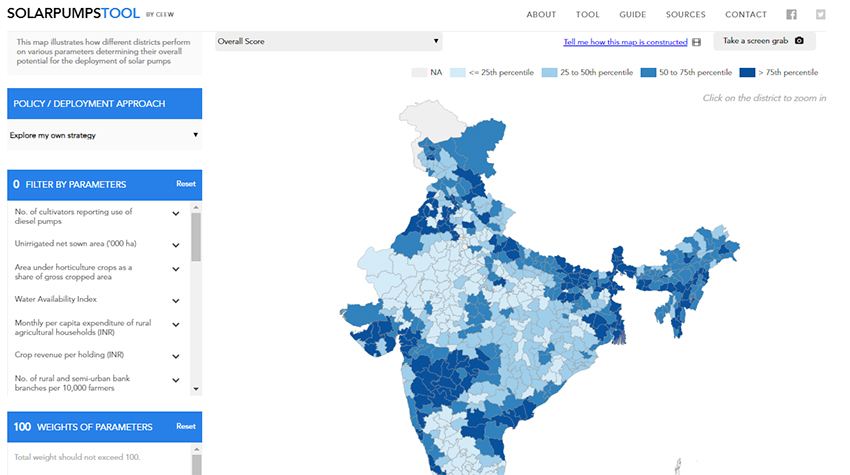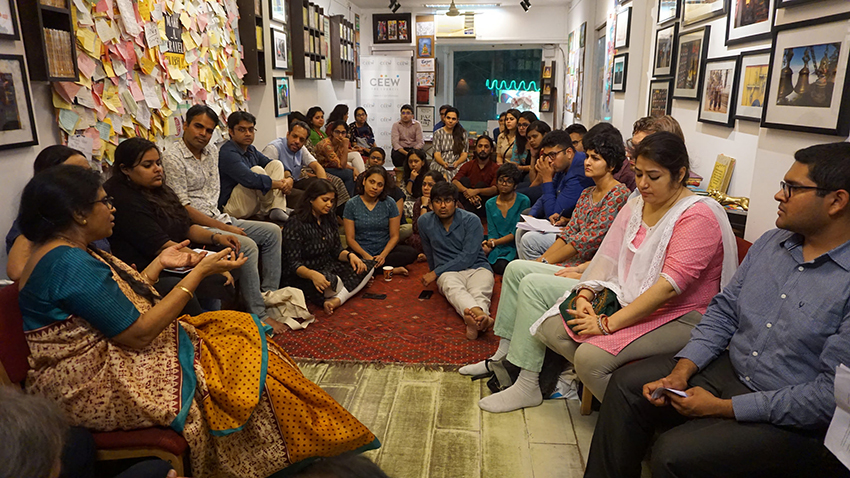



As 2018 comes to a close, we look back upon what has been a very special year for us at CEEW, and share with you a roundup of our research, engagements, and achievements.

We reinvented ourselves and moved to a new home
This year saw a big change for CEEW. We introduced a new logo to better emblemise our values, our identity, and our culture.
We also revamped our website to better exhibit the breadth of our work and provide an engaging experience to our diverse set of stakeholders. Our 2017-18 Year-in-Review captures more of what drives CEEW, and the people behind it.
In April 2018, we moved to our new office at Sanskrit Bhawan. We also set up a new project office - our first - in Uttar Pradesh, in line with deepening our work in the field, and across states.

We spent more hours in the field
This year, we continued to stick to our ethos of evidence-based research by designing more projects based on primary data to better understand on-ground complexities and the perspectives of grassroots stakeholders.
We released findings from ACCESS 2018 - India's largest multidimensional survey on energy access, which covered more than 9000 households across 56 districts in six of India's most energy access-deprived states - Bihar, Chattisgarh, Odisha, West Bengal, Madhya Pradesh, and Uttar Pradesh.
We conducted a primary survey of 429 enterprises across 11 clusters in eight states to identify why they struggle to adapt energy efficiency measures.
We spoke to around 1600 farmers in 160 villages across Uttar Pradesh to know what they think of adopting solar-based irrigation systems, and the challenges they would face in doing so.
We mapped the social, economic, and environmental impacts of Andhra Pradesh’s Zero Budget Natural Farming (ZBNF) programme.
We installed 48 low-cost air pollution sensors in rural Punjab and interacted with farmers to understand the ground realities of crop residue burning and rural air pollution.
We deepened our engagement on climate negotiations
At the global climate talks (COP24) in Katowice, Poland, our team undertook nearly 30 engagements to help advance the conversation around a robust Rulebook for the Paris Agreement and raise ambitions.
We hosted a well-attended press briefing on expectations from the negotiations, provided inputs on capacity building, transparency, and climate finance, deliberated on India's growth pathways and structural reforms needed in the country, and showcased the role Non-Party stakeholders can play in the climate regime.

We converted research into action
Part of broadening our research focus this year also led us to start projects that went beyond publications to find actionable solutions.
Our research on solar-based irrigation systems, begun in 2015, culminated in a web-based decision support tool, that helps prioritise target regions, identify deployment strategies, and devise policy incentives appropriate to the potential and limitations of 613 districts across India.
With the Delhi utility, BSES Yamuna, we developed three innovative business models, to overcome prevailing market challenges, and accelerate the deployment and adoption of rooftop solar systems in the residential sector in India.
To deepen solar markets and unlock finance for solar projects in developing economies, The Council, together with CII, TCX, and TWI, developed the Common Risk Mitigation Mechanism (CRMM), under the aegis of the International Solar Alliance (ISA). Announced by the Indian Prime Minister and the French President in March 2018, the World Bank is currently working on operationalising the derisking instrument in 2019.

We extended our outreach to the public
This year we made a concerted effort to increase our public outreach and provide nuanced information on issues of public interest.
At our discussions, we tried to include the perspectives of people on the ground, from farmers practicing solar-based irrigation to government workers trying to implement Saubhagya and Ujjwala.
Through our media engagements, and our individual meetings, we tried to provide accurate information on North India's air pollution crisis.
Our Women in Sustainability initiative hosted a screening of the documentary, A Plastic Ocean, followed by a discussion to delve deeper into the subject of waste management, and engage on a problem taken up by the public at large.
As CEEW heads into a new year, we thank you for your support in all our endeavours, and look forward to it continuing in the years ahead.
With the best of wishes for 2019
Team CEEW